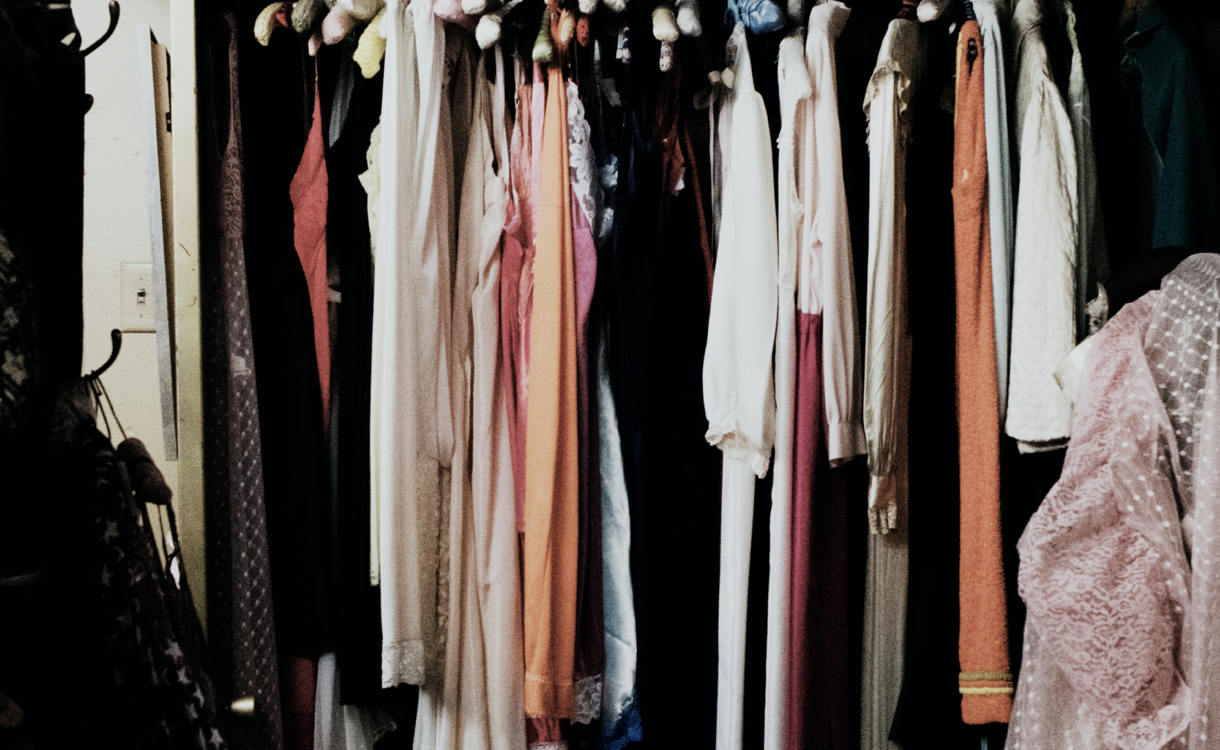“I am going to use this time to sell my clothes on Depop,” my stylist sister Olivia told me a week into lockdown.
“Do you think people are really going to want to buy your old clothes, now?” I questioned.
I was at peak paranoia. I couldn’t walk down the street without having a panic attack. Supermarkets filled me with dread. I washed my hands furiously until they bled every time I handled the post that came through my door.
However, for online vintage sellers, who work from home, this is an opportunity to keep selling. And for those having a spring clean, selling online while charity shops are closed means less stuff being chucked away. A study by Oxfam last year revealed that 11 million garments end up in landfill in the UK, every single week!
But is it safe to buy vintage online right now?
Harvard Health stated that ”There is currently no evidence that COVID-19 can be transmitted from soft surfaces like fabric or carpet to humans.” Plus, there have been no documented cases of the virus transmitted via clothing or shoes, according to Healthline.
Even so, I asked some vintage sellers about what precautions they’re taking during the pandemic…
“Prior to sending an item, I wash it on high heat. Then every time I handle the item, I wear latex gloves and a mask to ensure no potential germs are transmitted to the clean item. I also wear gloves and a mask when dropping my items once a week to the post office,” Lucy Parker, who runs Gold Infinity Vintage and sells on Depop, tells me. “I am also sourcing items safely. I am not leaving my house and am buying from online thrift stores or bulk from wholesalers, this is the safest way to do this at the minute and also to support other businesses.”
It’s also worth having a chat with the seller before you buy. Ask where an item came from, if it has been washed and how it’s being packaged. Plus you might be helping someone out who needs it. “I want people to be aware that they can still buy from online vintage shops and, at the moment, it is super helpful for me to get support from people buying online as a lot of my usual vintage fairs have been cancelled,” says Daisy from Florence May Vintage. “If any buyers have any questions or want any extra precautions made on their package, I am very happy to help in any way that I can!”
“I made the choice to keep my business open as I’m not eligible for any support – and I’m hoping I can bring some joy to my lovely customers during this time,” says The Pansy Garden Vintage. “It has been paramount for me to ensure safety for me and my customers. I only post out once a week and make sure items are packed and prepped in the most hygienic way possible – mask, gloves and antibacterial to hand. It has been a really testing time for Pansy but I’m ever so grateful for the support I have received from my wonderful customers, they’ve kept my small business going.”
Online marketplace Depop is constantly keeping their advice up to date here and advises its sellers to use an online collection and delivery service to ship items to buyers. Depop also states that all secondhand clothes being sold should be washed according to the manufacturer’s instructions. If you’re uncertain, you can always rewash something you have purchased when it arrives.
A new for you item arriving in a package on your doorstep might just bring you a moment of joy too. “I know I get a small lift buying a cosy vintage cardigan secondhand from Depop, something I can look forward to wearing now, something that someone doesn’t have room for anymore but can’t donate to a charity shop,” says Leila, a charity shop enthusiast who gave up fast fashion and sells vintage records and clothes on Depop. “Looking for second-hand clothes at the moment is actually really important, as so many people are having spring cleans, they will only end up in landfill, the other biggest threat to life on our planet.”
What about the packaging it arrives in?
I still worry though, can the virus be spread via packaging through the post? The Royal Mail has provided the following information: “Public health authorities have advised that people receiving parcels are not at risk of contracting the coronavirus. We have provided guidance to our people to help prevent the spread of any infection. We are doing so in line with preventative guidance from Public Health Authority. We have also made a series of adjustments to our parcel handling procedures.”
“From previous analysis, we know coronaviruses do not survive long on objects, such as letters or packages,” states information from the World Health Organisation. Although a study published on March 11 in the New England Journal of Medicine found that the coronavirus can live up to 24 hours on cardboard, and up to two to three days on plastic and stainless steel.
Although that doesn’t necessarily mean you can catch it from touching something that has arrived through your letterbox: “Detection does not mean transmissible,” stated Joseph Vinetz, MD, a Yale Medicine infectious disease specialist, when questioned by Health.com.
However, if you’re worried, get rid of the packaging immediately and thoroughly wash your hands.
Get creative with your own clothes
Of course, if you don’t fancy buying online, you can always use this time to sort out your own wardrobe! I love getting all my clothes out and trying them on, figuring out new combinations of bits that I’ve never worn together before. It’s amazing how fresh your own clothes can feel after a dress-up session.
“If you’re not a seller then use this time and have a massive clear-out of your items and set up your own shop,” advises Lucy, Gold Infinity Vintage. “If this is something you’ve always wanted to do then do it! Now is the time.” Or she recommends working some magic by repurposing! “Pick up some scissors and recreate old items that are sat in the back of your wardrobe, there’s so much opportunity to be had from recycling clothes.”
Do what feels right for you.
And if in doubt, wash the item, wash your hands, throw the packaging out!
Further information:
Royal Mail Coronavirus Updates
You can also keep up to date with the World Health Organisation









